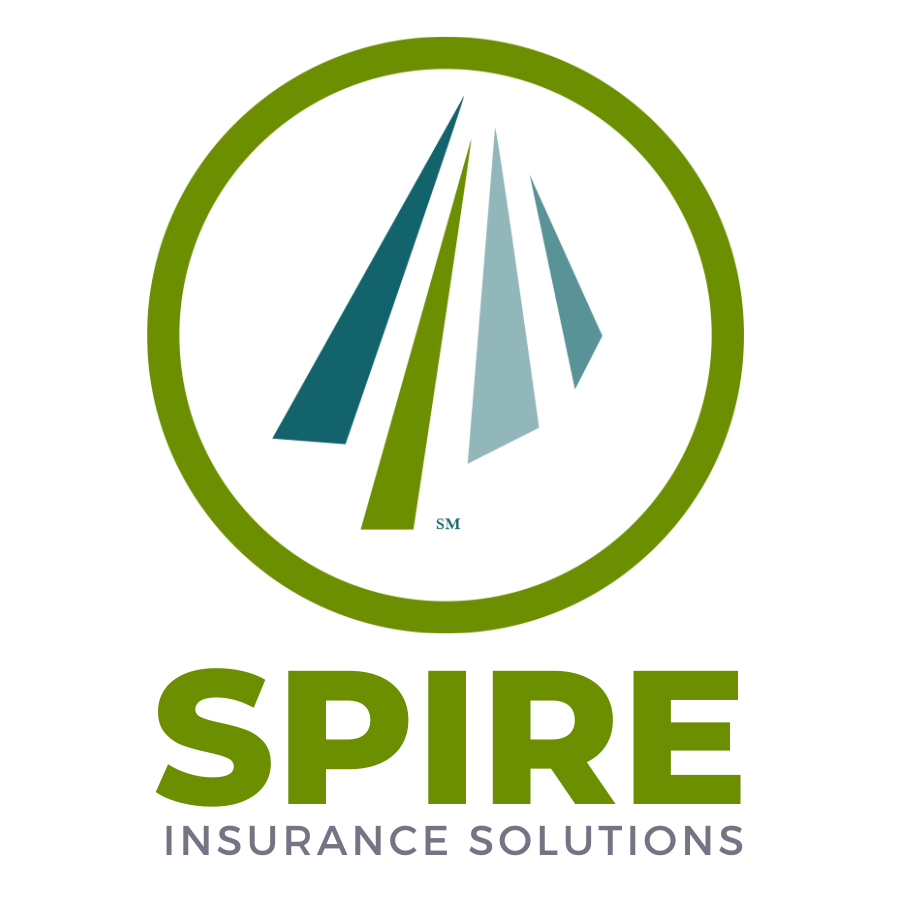Or call (800) 686-8664
INsurance for Grocery and Convenience stores
Customized Insurance Solutions for Your Grocery or Convenience Store
Convenience stores and grocery stores are essential providers of goods and services, catering to customers with convenience and accessibility. However, owning and operating these businesses also exposes you to a range of risks and potential liabilities.
Read our insurance guide below to arm yourself with knowledge to make informed decisions about your insurance. Or, if you prefer a professional handle your solution from start to finish, reach out anytime!
This insurance guide will help you:
- Determine what coverages you should consider for your business.
- Note typical exclusions to watch out for.
- Understand how insurance companies determine coverage and premium specifically for businesses in your industry.
When it comes to insuring your grocery or convenience store, several types of coverage should be considered to adequately protect your business:
-
Property Insurance: Property insurance provides coverage for your store’s physical assets, including the building, equipment, inventory, and signage. It also protects against perils such as fire, theft, vandalism, and natural disasters.
-
General Liability Insurance: General liability insurance covers claims for bodily injury or property damage caused by your store’s operations. It can also help with legal defense costs and potential settlements or judgments if someone sues your business for injuries or damages.
-
Product Liability Insurance: Product liability insurance is crucial for grocery and convenience stores as it protects against claims related to products sold in your store. If a customer becomes ill or is injured due to a defective product or improper labeling, product liability insurance can step in to provide coverage.
-
Workers’ Compensation Insurance: If you have employees, workers’ compensation insurance is typically required by law. It provides coverage for medical expenses and lost wages if an employee is injured on the job.
-
Business Interruption Insurance: Business interruption insurance is designed to help your store recover from a covered event that disrupts your operations, such as a fire or natural disaster. It can provide coverage for lost income, ongoing expenses, and additional costs required to resume normal business operations.
-
Cyber Liability Insurance: In today’s digital age, cyber liability insurance is crucial for protecting your store against data breaches, cyberattacks, and other cyber risks. It can help cover the costs resulting from data breaches, including notification expenses, credit monitoring, and potential legal liabilities.
-
Equipment Breakdown Insurance: Equipment breakdown insurance can provide coverage for the repair or replacement of equipment essential to your store’s operations, such as refrigeration units, cash registers, and HVAC systems. It can help cover the costs of repairs, business interruption, and spoilage resulting from equipment breakdowns.
-
Commercial Auto Insurance: If your grocery or convenience store has company-owned vehicles or uses vehicles for deliveries, commercial auto insurance is essential. It provides coverage for accidents, property damage, and injuries involving your business vehicles.
It’s important to assess your store’s unique needs and risks when determining the specific coverages required. Consulting with an insurance professional experienced in grocery and convenience store insurance can help you customize a policy that meets your business’s specific requirements.
The amount of coverage you need for your grocery or convenience store depends on various factors, including the size of your business, the value of your assets, the level of risk you face, and your financial capabilities. Here are some considerations to help determine the appropriate coverage limits:
-
Property Coverage: Calculate the value of your building, equipment, inventory, and other assets to determine the appropriate property coverage limit. Also, Consider factors such as replacement cost, market value, and any unique features or specialized equipment in your store.
-
Liability Coverage: Liability coverage limits should be sufficient to protect your business from potential lawsuits and claims. The amount of coverage needed may depend on factors such as the number of customers, the nature of your products or services, and the level of risk associated with your operations.
-
Business Interruption Coverage: Evaluate your business’s potential loss of income and extra expenses in the event of a covered interruption, such as a fire or natural disaster. Calculate the potential time needed to restore your operations and estimate the financial impact. This will help determine the appropriate limit for business interruption coverage.
-
Workers’ Compensation Coverage: Compliance with state laws regarding workers’ compensation is essential. The coverage limit for workers’ compensation insurance is typically determined based on statutory requirements. Consult with your insurance provider and local regulations to ensure you meet the necessary limits.
-
Cyber Liability Coverage: Assess the potential financial impact of a data breach or cyberattack on your store. Consider the costs of notification, credit monitoring, forensic investigations, legal expenses, and potential damages. Adequate cyber liability coverage should align with your risk exposure and the potential financial consequences of a cyber incident.
-
Equipment Breakdown Coverage: Evaluate the value of your essential equipment and consider the cost of repairs or replacement in the event of a breakdown. Set coverage limits that align with the potential costs associated with equipment failures and the impact on your business operations.
It is recommended to work closely with an experienced insurance professional who specializes in grocery and convenience store insurance. They can help assess your specific needs, evaluate your risks, and provide guidance on the appropriate coverage limits for your business.
When obtaining insurance coverage for your grocery or convenience store, it’s important to be aware of potential exclusions that may limit or exclude certain types of coverage. Exclusions can vary between insurance policies, so it’s crucial to carefully review the terms and conditions of your specific policy. Here are some common exclusions to watch out for:
Certain Natural Disasters: Many insurance policies exclude coverage for damages caused by natural disasters such as earthquakes, floods, hurricanes, or other catastrophic events. Consider whether you operate in an area prone to such events and assess whether you need additional coverage or separate policies to protect against these risks.
Intentional Acts: Insurance policies typically exclude coverage for intentional acts or illegal activities. If damage or liability arises from deliberate actions, it may not be covered by your policy. Ensure your employees are trained and informed about appropriate conduct to avoid situations that could lead to exclusions.
Employee Dishonesty: Some policies may exclude coverage for losses caused by fraudulent or dishonest acts committed by your employees. Consider adding an employee dishonesty or fidelity bond policy to protect against losses resulting from employee theft or dishonesty.
Pollution and Environmental Damage: Standard insurance policies often exclude coverage for pollution-related claims or environmental damage. If your business involves handling hazardous substances or materials, consider obtaining separate pollution liability coverage to address this specific risk.
Professional Services: If your store offers professional services, such as beauty salons, catering, or event planning, be aware that certain liability coverage may be excluded. Professional liability insurance or specialized endorsements may be necessary to protect against claims arising from professional services.
These are just a few examples of potential exclusions. It’s crucial to thoroughly review your insurance policy and discuss any concerns or specific coverage needs with your insurance provider.
While the exact method may vary among insurance companies and policy types, here are some common factors that typically influence premium calculations:
Risk Assessment: Insurance companies assess the level of risk associated with insuring your business. They consider various factors such as the nature of your business, industry risks, past claims history, location, and the overall financial stability of your business. Higher-risk businesses or those operating in riskier environments may face higher premiums.
Coverage Limits: The coverage limits you select for your insurance policy play a role in determining the premium. Higher coverage limits provide more extensive protection but also increase the potential payout for the insurer in case of a claim.
Deductible Amount: The deductible is the portion of the claim that you are responsible for paying before the insurance coverage kicks in. Generally, higher deductibles lead to lower premiums because you are assuming a greater portion of the risk. However, it’s important to choose a deductible amount that you can comfortably afford in the event of a claim.
Business Size and Operations: The size and scale of your business can impact premium calculations. Factors such as annual revenue, number of employees, square footage, and the scope of operations are considered. Larger businesses or those with more complex operations may have higher premiums due to increased exposure to risks.
Loss History: Insurance providers take into account your past claims history. If your business has a history of frequent or severe claims, it may be perceived as a higher risk, potentially resulting in higher premiums. Conversely, businesses with a clean claims history may benefit from lower premiums.
Industry Factors: Premiums can be influenced by industry-specific factors and trends. Insurance companies consider the risks associated with your particular industry, including historical data on claims, regulatory requirements, and market conditions. Industries with higher risks may have higher premiums.
Underwriting Factors: Insurance underwriters evaluate your business’s specific characteristics, including factors like the type of coverage requested, policy endorsements, and any additional risk factors. Underwriters analyze these factors to assess the likelihood of claims and determine appropriate premium rates.
It’s important to note that each insurance company has its own proprietary formulas and algorithms for premium calculations, incorporating various data points and risk models. Consulting an insurance provider can help you pinpoint the most cost-effective insurance solution for your business.

